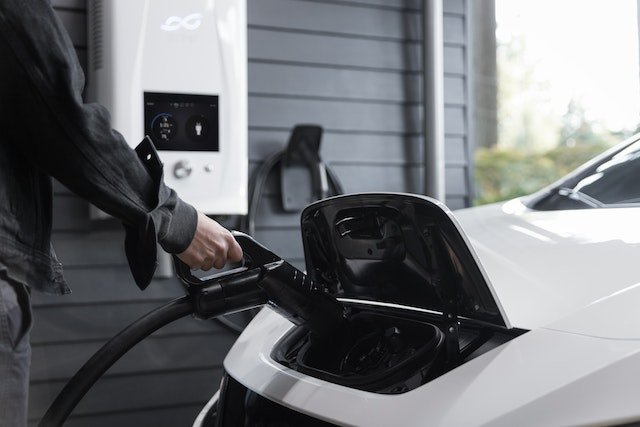Introduction to electric vehicles and charging stations
Electric vehicles are the future of sustainable transportation. With the growing concern over climate change and the need to reduce our carbon footprint, more and more people are turning to electric vehicles as a cleaner alternative to traditional gas-powered cars. However, with this rise in demand comes the need for an efficient and reliable charging infrastructure. That’s where EV charging stations and software come into play! In this blog post, we’ll explore how these innovative solutions can help meet the growing demand for sustainable energy solutions while also providing numerous benefits for both individuals and businesses alike. So buckle up, charge your batteries, and let’s dive into the world of EV charging stations!
The benefits of electric vehicles
Electric Vehicle (EVs) offer numerous benefits for drivers, the environment and society as a whole. First off, EVs produce zero tailpipe emissions, making them significantly more eco-friendly than traditional gas-powered cars. This means they can help reduce air pollution and improve air quality in urban areas.
In addition to their environmental benefits, EVs are also cheaper to maintain than gas-powered vehicles since they have fewer moving parts that require regular maintenance or replacement. They also typically cost less to operate since electricity is generally cheaper than gasoline.
Another advantage of electric vehicles is that they offer a smoother driving experience with instant torque and acceleration. Plus, many newer models boast impressive range capabilities that make long-distance trips more feasible without having to worry about constantly stopping for refueling.
Choosing an electric vehicle can be seen as a statement towards sustainability and reducing dependence on fossil fuels. By opting for an EV over a traditional car, individuals are helping promote the adoption of clean energy solutions and contributing positively towards mitigating climate change impacts.
The challenges of electric vehicles
As with any new technology, electric vehicles come with their own set of challenges. One major challenge is range anxiety, or the fear that an EV won’t have enough charge to reach its destination. While this is becoming less of an issue as charging infrastructure grows, it still poses a barrier for some consumers.
Another challenge is the cost of EVs compared to traditional gas-powered cars. Although prices are coming down, many people still find them too expensive to justify the switch.
Additionally, there is currently a lack of standardization in terms of charging connectors and protocols. This can make it difficult for drivers to know which stations are compatible with their vehicle and can slow down adoption rates.
There is the issue of battery life and disposal. Lithium-ion batteries used in EVs contain hazardous materials and require specialized recycling processes when they reach the end of their useful life.
Despite these challenges, advancements in technology and growing demand for sustainable transportation solutions will continue to drive progress in the industry.
The future of electric vehicles
The future of electric vehicles is looking bright. With advancements in technology and increasing demand for sustainable transportation, the market for EVs is expected to grow significantly over the next few years.
One major factor contributing to this growth is government incentives. Many countries around the world are implementing policies that promote the adoption of EVs, such as tax credits and rebates. This will make it easier and more affordable for people to switch from traditional gas-powered cars to EVs.
Another driving force behind the future of electric vehicles is innovation in battery technology. As batteries become more efficient and cost-effective, they will be able to power larger vehicles with longer ranges. This means that consumers will have more options when it comes to choosing an EV that fits their needs.
In addition, charging infrastructure is rapidly expanding across cities and highways around the world. DC fast chargers can now provide up to 80% charge in just 30 minutes or less, making long distance travel by EV much more feasible.
There are many exciting developments on the horizon for electric vehicles. As technology continues to improve and governments continue to incentivize their adoption, we can expect a cleaner and greener future on our roads.
How to choose the right EV charging station
Choosing the right EV charging station is crucial to ensure that your electric vehicle is charged efficiently and effectively. Here are some factors you should consider when selecting an EV charging station:
1. Charging speed: The charging speed varies depending on the type of charger, so it’s important to understand which one suits your needs best.
2. Compatibility with your car: Not all chargers are compatible with all electric vehicles, so make sure you select a charger that works with your car.
3. Cost of installation: Installing an EV charging station can be expensive, so it’s essential to factor in the cost of installation before making a purchasing decision.
4. Network accessibility: Consider choosing a charger from a network provider that offers wide coverage and easy accessibility for convenient recharging on long journeys.
5. Additional features: Some chargers come equipped with additional features such as mobile apps for remote monitoring or built-in cables for convenience.
By considering these factors, you’ll be able to choose the right EV charging station that meets your specific needs and allows you to charge your electric vehicle quickly and conveniently wherever you go!
Conclusion
The demand for sustainable energy solutions is rapidly increasing and electric vehicles are becoming more popular than ever. However, to fully embrace this technology shift, we need adequate EV charging stations that can meet the growing demand.
Choosing the right EV charging station requires careful consideration of your needs as well as future growth potential. It is important to understand how each station works and which software program it supports before making a final decision.
Investing in an EV charging station not only benefits the environment but also provides convenience for customers who own electric vehicles. By offering this service, businesses can attract a new customer base while demonstrating their commitment to sustainability.
As we move towards a greener future, it’s crucial that companies continue to innovate and adapt by providing eco-friendly services such as EV charging stations. With the right strategy in place and support from government initiatives, we can create a better tomorrow for generations to come.



